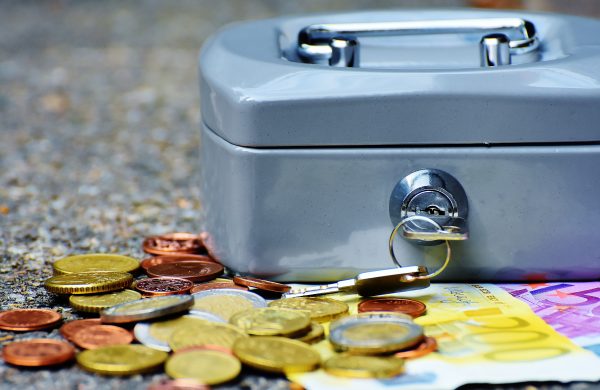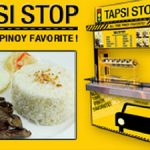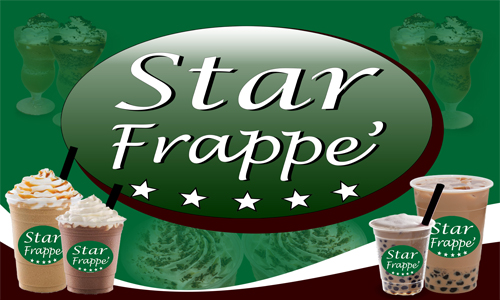Four Things You Should Consider Before Applying for an OFW Loan
Let’s say you are an Overseas Filipino Worker, and might fall short of cash necessary foranything that you might need. And upon hearing about your benefits and perks you have with the office of the Overseas Workers Welfare Administration.
Keep in mind that you need to know a few nitty-gritty of the application. You can familiarize yourself with the basic steps for applying for the loan, but you must also be armed with the basics of starting to think whether or not you need the loan.
Before you jump on the boat of applying for an OFW loan, we list down here a couple of intrinsic things you must understand so that you will be well versed with all the terms needed for the loan, even at the basic of ideas.

1. Loan Basics You Need to Know
This is perhaps the most nitty-gritty part because you need to know all of these to be eligible for a loan. To pass for eligibility means you have met the requirements needed to qualify for a loan. These eligibility requirements vary from lender to lender. But the basic requirements, you will need to have these:
- you are at least 21 to 60 years old, at the time of the loan maturity.
- your Overseas Employment Certificate (for both land-based and sea-based workers), and/or Seafarers Registration Certificate (for sea-based workers)
- your recent Passport.
- your Working Visa.
- a Proof of Residence. Electric bills and phone bills can take care of this.
- Government-issued IDs and other valid IDs.
- your Employment Contract.
You might find lending companies that accepts requirements like Balikbayad. Nonetheless, check the eligibility requirements needed by lending companies before you apply to speed up the processing of your application.
You need to know about security or collateral the loan asks for. Basically, it is any of your asset that will be used to used to guarantee the payment of the loan. It can be a real property (land, house, or condominium unit), chattel (car), stocks, bonds, goods or fruits of the business, deposits, or any other assets with monetary value.
Collateral is necessary especially if you are applying for specific loans such as housing loans or business loans. Otherwise, unsecured loans like personal loans and credit card application do not need collateral.
Of course you will be checking on interest rates, whether they are fixed, or variable or adjustable. Fixed rates remain constant, meaning if your initial rate is at 8%, it will remain 8% during the entire duration of the loan regardless market changes. Variable rates, meanwhile is based on the prevailing standard market rate, and will change from time to time. Keep in mind that the type of interest rate will depend on the nature of your loan.
You must check on other terms needed for your loan application. Loan term, for example will determine the duration of your loan in which you have to pay back before the term ends, which can be as short as 30 days to s long as 15 or 20 years. Lenders will check on your credit standing or your reputation to paying or meet your financial obligations. The higher and the better your credit score is, the more willing a lender will be in financing your cash flow needs.
Applicants should be checking too on processing fees,s or charges companies incur to its clients as fees for the processing of loan application. In line with this are payment terms or the manner and modes of payment for your loan.
2. Your Reasons for Getting the Loan
There is a plethora of reasons why OFWs need to apply for these loans. They might need extended financial assistance for financial assistance on emergencies especially for family affairs. They could be in need of pre-deployment loans for guaranteeing a plane ticket. They might have needs for a business opportunity, as the government a well as financial institutions recognize the need of OFWs to have a sustainable and stable source of income. Or if they got out of a job, they just need to get back in track and seek for re-employment loans that will cover processing of requirements needed for overseas work.
3. The Co-Maker for Your OWWA Loan
Then you need to find a co-maker. Basically a co-maker is a person who promises to pay the loan of another in case of default. Of course this will be under contract. A co-maker is often used when one applies for a collateral loan, and when the borrower is unable to meet certain credit criteria, like age requirements or insufficient proof of income.
Having a co-maker means you can increase the amount of loan and also raise your loan’s approval chances, especially if the co-maker is in good credit standing and has sufficient income.
It’s a common mistake to mix up a co-maker with a co-borrower. The latter is more common on non-collateral loan, and often he’s the one billed to pay for the monthly loan amortization, in case the principal failed to make any payment.
Remember, though, that not everyone is willing to be a co-maker. So make sure to pay for your obligations, even if someone can back you up to pay for your loan.
4. Available Loan Facilities
Finally, it is time to know available loan facilities and how it will fit your specific need.
Personal loan tops the list. This is basically a loan that allows you to use the funds for whatever purpose. This loan allows you financial flexibility, as a source of quick cash, especially during emergency situations, like paying for medical bills, tuition fee, home improvement, to sponsor special events, or even to buy furniture or gadgets. You can borrow for as little as P10,000, while some banks allow up to P1 million.
Compared to the personal loan, a car loan lends money solely for the purchase of a vehicle. Depending on terms and arrangements with the bank, this loan is payable within three to five years.
Availing a home loan allows one to buy a newly-developed lot, a residential house and lot or condominium unit. The loan even allows for payment of construction or completion of a residential unit. You may also use a housing Loan to refinance an existing home mortgage.
Surely, OFWs don’t want to work overseas forever. He can consider getting a business loan, which will provide capital to get a business idea started. The loanable amount varies, and ranges from P100,000 to P2 million.
Remember that before applying for a loan, identify your needs and establish the goals you want to achieve.
Check These Related Posts!
 How to Start a Reyes Barbecue Franchise
How to Start a Reyes Barbecue Franchise How to Start a Mushroom Business in the Philippines
How to Start a Mushroom Business in the Philippines Cebuana Lhuillier Franchise: Is it a possibility?
Cebuana Lhuillier Franchise: Is it a possibility? How to Save Money Using the JARS System
How to Save Money Using the JARS System Romantic Baboy Franchise: Is it a possibility?
Romantic Baboy Franchise: Is it a possibility? Tapsi Stop Franchise: Details, Franchise Fees and Contact Info
Tapsi Stop Franchise: Details, Franchise Fees and Contact Info How to Start a Kumon Franchise in the Philippines?
How to Start a Kumon Franchise in the Philippines? Productivity Hacks When You Feel Lazy at Work
Productivity Hacks When You Feel Lazy at Work














Leave a Reply